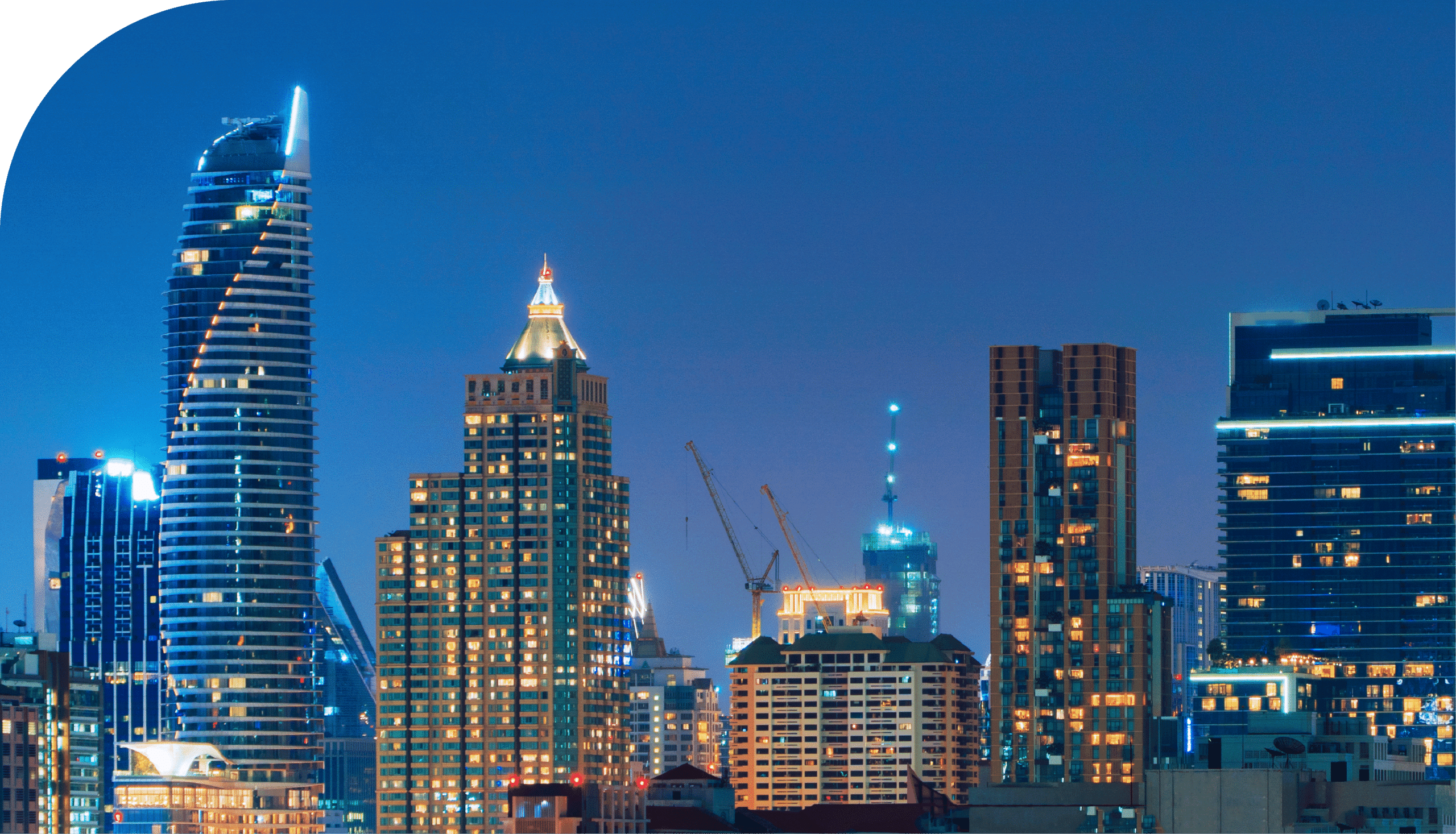Smart Cities and the way of the future – Podcast Transcript
Reading time: 13 minutes
Disclaimer: The podcast is presented in its original conversational form and has not been altered for reading purposes.

TLDR:
- The success of establishing smart cities will depend on synergy and how industries are going to collaborate and work together with government to make smart cities become a reality.
- FNOs and ISPs will have to show municipalities and the government the benefits of smart cities to speed up adoption.
- The benefits of Smart Cities to consumers include:
- Information is able to flow efficiently and real-time information sharing is a reality.
- Communities living a less stressful life.
- Communities can have a safer environment with technology and internet-enabled security.
- Smart metering can assist the municipalities to record correct readings and bill people correctly and all in real-time.
- Shift towards a more proactive than a reactive approach to service delivery.
- Smart Cities will open up opportunities for more internet-driven businesses, like ride-hailing services, home shopping and delivery services.
- The internet of things (IOT) will create an opportunity to build smart environments (homes/cities) that are flexible and which you can manage to better serve your individual needs.
- Smart homes and smart cities will become reality in South Africa in the next five years.
Podcast link: https://iono.fm/e/1285295
Jon: Hello and welcome to another episode of the Evotel Podcast. I’m your host, Jon Gericke, again joined by Bradley Becker, Evotel General Manager. Bradley, we teased this podcast and I’m really looking forward to it. Smart cities and the way of the future. We’ve been talking about smart cities for years. We hear the government talking about smart cities. Can we, I don’t want to use the word trust, do we have faith that smart cities can be implemented by the government?
Bradley: I mean as a South African, obviously we’ve been through quite a bit. So it’s always difficult to kind of trust the process and believe that these deliverables are actually achievable.
But I guess if we all work hand in hand, us as fibre providers, your internet service providers that can then add value-added services on top of that and then your municipalities and your government institutes. I think it’s going to be a very collaborative effort. I think the technology and the infrastructure have been so far behind for a very long time. There’s going to be a lot of synergy needed.
You have to remain as positive as you possibly can. I definitely think as the industry matures a lot more, which it is starting to do, the municipalities and the government’s institutions will start seeing the maturity and it’s in what we want to start tapping into the whole smart city concept a lot more. So I think we as FNOs have to basically just enable them and start showing them and educating municipalities as well. I think that’s also where a lot of our trust is going to come around educating them so that they understand the benefits. And I think that’s where the gap is currently.
Jon: Public service is also famous for slowly turning. It turns, but that it just takes a long time for something to happen because of various reasons, whereas the private sector can move a little bit faster. So the two of them working together, you speed up the government and then the government can make sure that you guys are behaving yourself.
Bradley: I think there is a learning opportunity on both sides. Us as an FNO, there are things that we’re not aware of and things that we learn along the way. And I think it’s our responsibility now as a fibre network operator in these areas to start educating municipalities and governments in terms of what they can unlock and how we can actually better their lives and better the employees’ lives, etc.
Jon: Okay, let’s talk about how you can. How can you make our lives better when we talk about a smart city? What do you see as Evotel?
Bradley: When I think of a smart city, I literally think of a hub where information is able to flow quite efficiently. That has always been a big struggle for South Africans is access to information. I see an environment where community members, municipality members are all able to connect to one another. Most communities we build in are very tight-knit. I see a lot of cohesiveness in terms of communication within communities. I see people living a less stressful life. In the sense that they can go to work and they can go on holiday knowing that their area is looked after from a security point of view, etc. I see a lot of cameras going up, a lot of Wi-Fi hotspots going up where people can continuously connect to the internet, can continuously check into their communities, their houses, make sure that everything is safe.
If you look at Times Square as an example, right? Everything is digital. Everything is connected. Ads, information, public announcements, all those things are able to give information to people using that platform. So I also see, an opportunity where communities can have community notice boards that are constantly connected to the internet so that, again, real-time information can flow around events, etc., that’s happening. When I see a smart city, I literally see cars flying around.
Jon: I’m just thinking there are so many opportunities with fast internet and fast, relatively free internet. It costs, but it’s cheap at the moment. I could start a community TV station or a community radio station. Because I can stream online, really, well, almost for free, if I’ve got my fibre connection.
Let’s talk about how the government can work better using a smart city. In the previous podcast, you mentioned smart meters, for example.
Bradley: I mean, smart metering is going to be quite a big thing, I think, in the next year or so, as we start trying to find more efficient ways of running our municipalities. I think the overall well-being of that community and the municipality will kind of be tackled with connectivity in the sense that they don’t have to go and employ hundreds or thousands of people to go and take the readings of the meters. All of this can be done in real-time. So I think we start shifting from being reactive to being proactive. We start allowing community members to have a view of their meters. So that synergy between community members and municipalities is better because now there’s no frustration. It’s very clear. This is how much you’ve used, this is how much you pay.
Jon: I’m seeing things with the solar providers, some of my mates have got solar providers, and they can see how much electricity is coming in and out on an app, which is connected somehow to their solar. That’s what you’re seeing for electricity as well. I could see exactly what is happening.
Bradley: Electricity, water, your basic utilities and such, you should be able to want it to real-time. And again, I think there’s a lot that has to go into it, but the municipalities are starting to flirt with the idea. So it’s really exciting.
Jon: It’s more than just government service delivery, which we get speed, all those kinds of things. How does it help me? The one thing I’m thinking of is Checkers 60/60, for example, and the other service deliveries. That’s because I’ve got fast internet and I can follow the driver. That’s again, because of the internet, right?
Bradley: Correct. A lot of the cities that we have also built in are a lot of your secondary cities that don’t necessarily have Uber and Mr D and all those types of things. So I think as we start rolling out more fibre networks, and like I said, the industry starts maturing the likes of take a lot, Mr D, Uber, Bolt, all those companies start gaining an appetite to want to go and deliver service in these areas because they know there’s going to be an appetite for it. And people are able to actually order the service by just simply being connected to the internet. Everything we do nowadays is connected to the internet to some degree, whether you using a wireless connection on your phone or whether you are connected at home by fibre, the need to always be connected is always going to be there.
Jon: We threw ahead to an acronym called IOT, the Internet of things. And just before we started recording this, we were talking about how much of our current life is connected to the internet. There’s the phone, and television, at least I got a smart TV connected. I’ve got an Apple TV, which is connected. And I’m starting to run out of plugs to be able to plug it into. So you suddenly realise it when you do all those kinds of things. But you were talking fridges and light bulbs, all those things.
Bradley: I’m a victim of this of a lot of this stuff in my own household and I’m currently going through that whole process of trying to build my own little smart home. I’ll give you a little story. I left home and forgot to close the garage door. A lot can happen. People can break in. People can take stuff out of the garage. My dogs can escape. And the way technology has evolved now, if I have a connected home, I’m able to actually on an app look, oh, geez, the door’s open. Let me close it. You know, before you even get home, you can really start switching on lights so that you’ve got that sense of security when you get home. There’s even, you know, we’ve got a little dog at home. He likes chewing things. There are ways that you can even speak to your dog through the cameras. I saw something on the internet the other day of a little dog treat system that when your dog is misbehaving, when you’re not at home, you can talk to them through this little, it’s like a little screen. And if they acknowledge it, they touch the screen and a little treat comes out. So there are ways that you can also just better your life and live a more comfortable life by just having less anxiety around what’s happening at home, et cetera. But there are so many things. VoIP is also another thing, which is your phone. So you can make phone calls using the Internet, which is a lot cheaper. So that’s a huge, huge advantage of fibre.
As things start evolving, there’ll be a lot more technology that gets out of it. But light bulbs, switches, anything.
Jon: I’ll tell you a story I saw about a smart home as well. It was a dog who didn’t like going outside to do its business in the dark and it needed the light on. So the guy installed a smart switch that goes via the internet when it goes out the little doggy door. And as it goes out the little doggy door, it switches the outside lights on. So the dog could go outside and do his little business.
Bradley: It’s small, small things like that that just better your life. That’s the exciting part of building a smart home. And it’s flexible, right? You build a smart home based on your needs. And that’s the exciting thing. There’s a lot that you can do, but it’s based on what you need.
Jon: All right. If I can’t afford all of that, let’s talk about security. And I think that’s the big issue that comes up. Everybody’s security and electricity are the two things South Africans talk about all the time. How will a smart city help secure me in my everyday life?
Bradley: So in a few of the areas that we have built fibre networks in, we’ve actually installed camera nodes in selected parts of that area. And we work very closely with like the municipality, the CPF, et cetera, to identify crime hotspots. If criminals know that they’re constantly being watched and there’s technology to be able to trace their every move and to pick up on weird instances where they’re in an area that they shouldn’t be in, there’s all this technology that can start flagging people proactively. So we install camera nodes throughout these specific areas where there are crime hotspots. This camera technology has AI enablement so it can pick up on license plate recognition. It uses algorithms to pick up whether this is usual, this is unusual. And if it’s unusual, it will flag it again, whether it’s an issue or not, it’s always good to proactively deal with these things. We allow the SAPS et cetera to tap into this space so that again, they can add another layer of security to the community that they serve.
Jon: So you said that twice now as being proactive. So you’re seeing something before it happens as opposed to the crime having happened and then the police arrive, take your statements.
Bradley: Then I suppose having cameras as well allows you to deal with, let’s say the police don’t get there on time. Unfortunately, things happen. You know, you’re able to trace the route that that car drove to kind of escape or whatever. So there are a lot of benefits to it, even though you can’t always react or you can’t always deal with it proactively. There are ways that we can also then go and find that person afterwards by using that technology installed.
Jon: What is the timeline, Bradley Becker, that we can see a smart city? We’re talking sometimes 30 to 40 years, 25 years. Do you see this just one day we’re going to wake up and go, oh, we’re living in a smart city?
Bradley: No. There’s a long-term player. I don’t think, again, just like the fibre industry took roughly around 10 years to really start gaining traction. I think the space that we’re in technology has evolved very quickly. So I don’t see it taking as long as the fibre industry took to mature. So I definitely see smart homes and smart cities coming into play in the next five years, minimum
Jon: I’m imagining it’ll grow as fibre grew. It’ll start with four or five little houses that are working together and becoming a smart block, a smart neighbourhood and growing out like that.
Bradley: So I’m seeing security companies in the areas that we’ve built in be able to evolve and expand their horizon in the sense of what service delivery they can give to their current customers there. They can start really adding technology from their side to better their services. Instilling back into and giving back to the community and empowering them. That’s new business opportunities, etc. as well. They come along with it as well.
Jon: So instead of just having a security guard with a gun going there, they can hire IT guys and you can hire people who just sit in an office. You don’t need to be super fit. So there are different people who can be employed as well. There are so many options. All right, we’re gonna leave it there. We’ve been talking forever about smart cities. Hopefully, we get a smart city soon. But I think with private investment and government working together, I think we should get something soon. Bradley Becker, thank you very much. Evotel general manager joining us here on the Evotel podcast. Thank you very much for joining us.
Note: The Evotel Podcast is produced by Pint Size Media and this episode is hosted by SAfm presenter, Jon Gericke.

